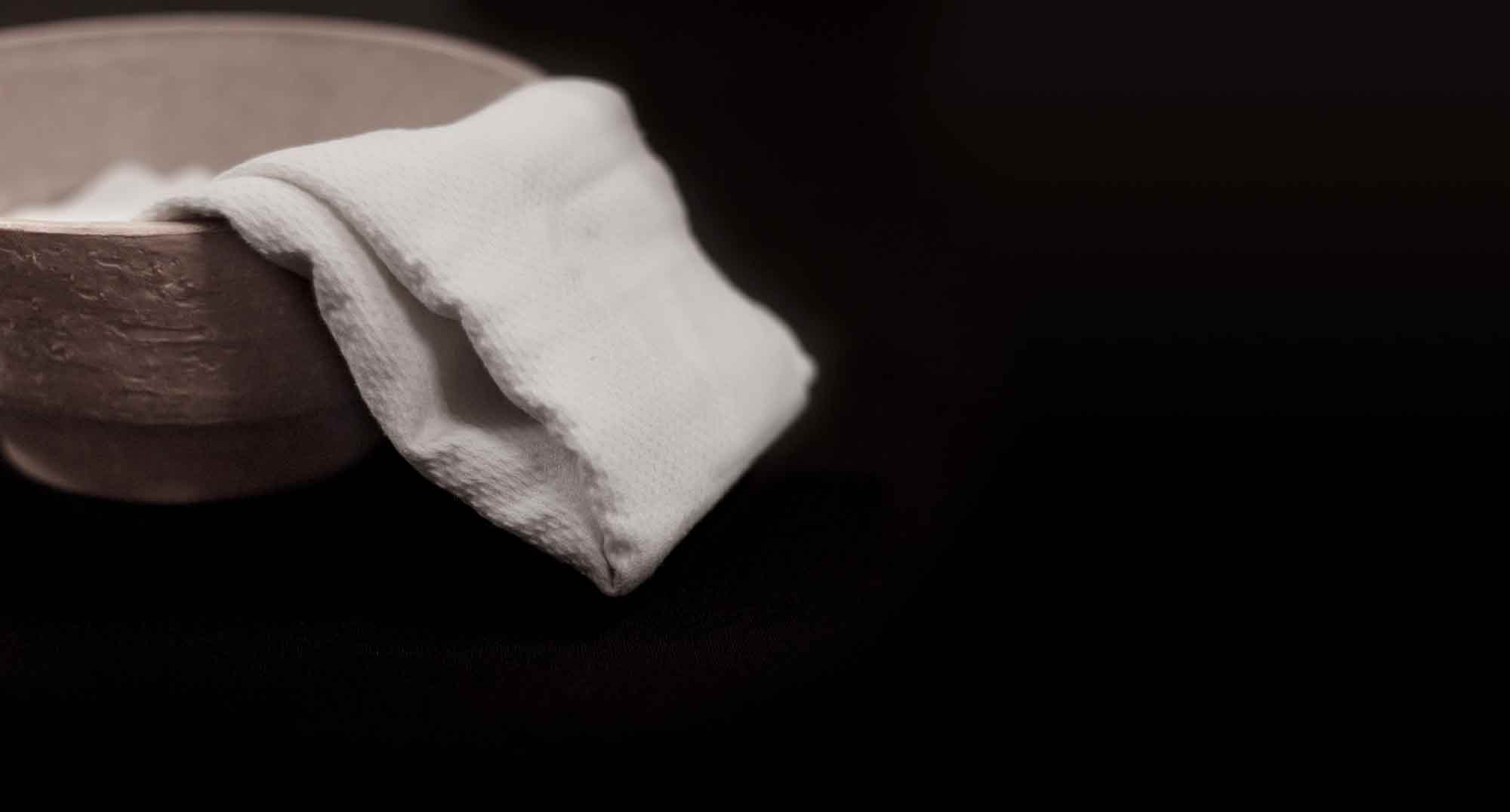KATHERINE ASHBAUGH | GUEST
The Feast of the Passover has arrived, and Jesus knows his hour has finally come. Having loved his own in the world, he will love them to the end.
We enter the scene of John 13, where Jesus and his disciples are enjoying a last meal together. Celebration abounds, friendship and feasting too. Judas Iscariot, the betrayer, is present, as are the rest of Jesus’ faithful disciples— the men he has allowed to walk and watch his ways. Men, who have been fed by the Bread of Life, with fish and loaves and with words powerful to save, strengthen, and encourage. Men, who have witnessed and performed miracles in his name, bodies healed, and sins forgiven. Men, who have confessed, “Lord, to whom shall we go? You have the words of eternal life, and we have believed, and have come to know, that you are the Holy One of God” (John 6:68-9).
And Jesus is present at the meal. The Lamb of God.
As the action begins, we learn that Jesus knows his Father had given him all things, and so with purpose he rises and moves towards each disciple, tenderly washing their feet. One after another, first the washing and then the drying, with a towel wrapped around his waist. The process is physical, messy and wet, refreshing and warm, and utterly confusing, as Peter makes clear when his turn arrives. “Lord, do you wash my feet?” (John 13:6).
“If I do not wash you, you have no share with me,” Jesus replies (John 13:8), so in characteristic form, Peter enthusiastically requests a full washing, his hands and head as well.
No. A full washing is unnecessary. Peter is already bathed, made clean through faith in the one the Father has sent, justified fully, forever. “The one who has bathed does not need to wash, except for his feet, but is completely clean” (John 13:10). Even so, brokenness and sin will continue to resurface and reattach. Peter must allow Jesus to proceed.
As I Have Done to You
Jesus finishes his work and returns to his place among his friends and betrayer. Do they understand? Can they see that this time of washing is meant as an example? He, their teacher and Lord, has served them from a posture of deep humility, the posture of love. In the same way he has loved them, they are to love one another. “You also should do just as I have done to you,” he says (John 13:15).
As I thought about this interaction over the course of a few weeks, I found myself wanting to focus on Jesus, intrigued by Jesus, the Son of Man, the Son of God. Humble and healthy, gentle and wise. Willing, vulnerable, strong. Holy. I wanted to sit with him, to listen, watch, and learn. Jesus, so loving, so worthy of love. How to love him well in return? Yes, my 850 allotted words would be spent on thoughts of Jesus. What a satisfying exercise!
And yet, as I looked again, my thoughts progressed with the passage, from the man himself to the example he was setting. “You also should do, just as I have done to you.” In focusing on Jesus, our hearts are moved to see what he sees, to love what he loves. His body, the church. To love Jesus is to love what he loves, and Jesus loves his own to the end.
Back to the story. Jesus knows he must leave, and that suffering will mark the road ahead for his disciples without him. As the next few chapters record, numerous spiritual realities for help and encouragement are given, a future home, the Holy Spirit, prayer, union with Christ. But first, within this circle of ordinary men, Jesus highlights a tangible blessing and help. One another. Jesus blesses us with one another.
Humility, a Posture of Love
As Jesus, our master, assumes a posture of love towards us, so we assume a posture of love towards one another. For a servant is not greater than his master. So, let’s consider what we can learn from this scene of washing, this posture of love, namely humility.
Humility, to allow Jesus to wash our feet. Remembering Jesus’ gentleness and holiness, we come, confessing and repenting, asking for help with indwelling sin. Remembering his sufficiency, we have confidence that he can and will forgive, and that he already has.
Humility, to follow his example, to willingly wash the feet of one another. With joy, we care for the sins and sorrows of Jesus’ own. We offer fish and loaves, generously and freely. We speak life-giving words to save, strengthen, and encourage. We confess and repent to one another, and forgive not seven, but seventy-seven times. We submit to one another out of reverence for Christ.
Humility, to allow others to wash our feet. We recognize our need for the people of God in our lives and gratefully receive their words, care, and love as a gift from God himself.
Humility, to follow Jesus to the cross, pursuing lives characterized by death to self, motivated by love for God and others, bringing about healing and hope.
Jesus’ own humility is the glory of God the Father. He promises that if we know these things, we will be blessed if we do them. When we look to Jesus, his love compels us to love as he loves, such that all men will know we are his own. And friends, it bears repeating: Jesus loves his own to the end.

